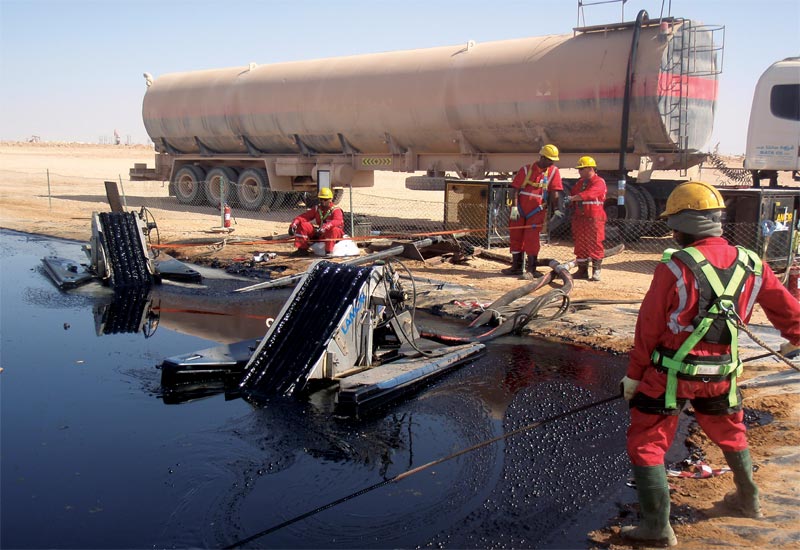Fats, Oils, and Greases (FOGs), collectively termed 'waste oils,' are byproducts of various industrial processes and are distinct from 'used oils' due to their physical or chemical contamination, which renders them irrecoverable and unusable. Understanding this distinction is crucial for implementing appropriate and safe disposal methods.
In today's environmentally conscious society, proper waste oil disposal is vital for safeguarding our ecosystems and public health and maintaining legal compliance. Waste oil can have profound environmental and economic impacts if not managed correctly. Let's delve into the significance of proper waste oil disposal and look into effective methods for managing it.
Environmental Impact
Proper disposal of waste oil is vital for safeguarding our environment. Mishandling these substances can lead to severe pollution—from the soil to the water resources to the atmosphere—affecting everything from local wildlife to global water sources. In this section, we delve into the various ways waste oil impacts our planet.
Soil Contamination
Simply pouring waste oils down the drains or letting it seep onto the ground is a very easy way to eliminate them. However, sticking to this disposal method can contaminate the soil and significantly reduce soil fertility, affecting plant life. Moreover, contaminated soil causes long-term harmful effects on agricultural lands and may leave them barren for years, posing a severe risk to food security and biodiversity.
Pollution of Waterways
Waste oil that makes its way to the ground may not only pollute the soil but may also reach down to the groundwater, contaminating a potential source. And while we are on the subject of polluting water sources, it's important to note that one litre of waste oil can contaminate one million litres of water. Annually, countless litres of waste oil find their way into rivers, lakes, and oceans due to improper disposal. With this, the scope of contamination that can devastate aquatic life and disrupt entire ecosystems is unimaginable. It's essential to understand that waste oil is not only a local problem but a global threat to water resources.
Impact on Wildlife
The improper disposal of waste oil poses severe threats to aquatic and terrestrial wildlife, disrupting ecosystems and food chains. In water bodies, oil reduces oxygen levels and coats fish gills, leading to asphyxiation and affecting reproductive systems, which diminishes biodiversity. Terrestrial animals exposed to contaminated soil suffer from toxic ingestion, organ damage, and loss of thermal insulation, jeopardizing their survival. These contaminants degrade habitat quality, hinder plant growth, and necessitate costly, long-term ecological restoration efforts. Effective waste oil management and stringent regulatory compliance are crucial to prevent such environmental damage and protect wildlife health.
Health Risks
The health implications of improper waste oil disposal are alarming. From direct contact to contamination of water supplies, the potential health risks affect both individuals and communities at large. Here, we examine these risks in detail.
Direct Exposure Risks
Exposure to improperly disposed waste oil can lead to a variety of serious health issues, both acute and chronic. These health concerns include dermatological issues, respiratory problems, eye irritations, and neurological effects. Individuals who come into direct contact with waste oil, particularly those in industries such as automotive repair, recycling, and waste management, are at increased risk.
Contaminated Food and Water Supply
Contaminated food and water supply due to improperly disposed waste oil can lead to the accumulation of harmful chemicals in crops and livestock, affecting human health when consumed. This contamination endangers public health with potential outbreaks of foodborne illnesses and compromises water quality, making it unsafe for drinking and everyday use.
Long-term Health Effects
Chronic exposure to pollutants from waste oil can lead to a range of long-lasting health conditions. Continuous contact with or inhalation of these pollutants can cause severe respiratory issues, such as asthma and chronic bronchitis. It may even increase the risk of developing cancers, particularly skin and lung cancer. Additionally, the toxic substances in waste oil can lead to neurological problems, including chronic headaches, fatigue, and more severe disorders like peripheral neuropathy. These conditions not only affect the quality of life but also impose significant long-term healthcare costs on individuals and communities.
Laws and Regulations
Navigating the legal landscape of waste oil disposal is crucial for any business or individual. Australian laws are particularly strict regarding environmental protection, and this section outlines the necessary legal frameworks and the importance of compliance.
Local and National Regulations
Various laws at the local and national levels regulate the disposal of waste oil. Key regulations include the following:
- Hazardous Waste Act 1989 (Cth): This act classifies waste oil as hazardous waste and outlines strict guidelines for its disposal, storage, and transportation.
- Environment Protection and Biodiversity Conservation Act 1999 (EPBC Act): This national legislation includes provisions for managing substances that can harm the environment, including waste oil.
- State-based Environment Protection Authority (EPA) Regulations: Each state and territory in Australia has an EPA that sets and enforces regulations on waste oil disposal. These regulations often require that businesses generating waste oil register with the EPA and adhere to specific disposal procedures to prevent soil and water contamination.
Penalties for Non-Compliance
Failing to comply with waste oil disposal laws can result in hefty fines and legal challenges, making compliance a priority for individuals and businesses.
Guidelines for Businesses and Individuals
Individuals and businesses must stay informed about the regulations about waste oil disposal to avoid legal repercussions. Understanding and following the established guidelines for waste oil disposal is essential for maintaining legal compliance and protecting the environment.
Economic Consequences
The financial implications of improper waste oil disposal are extensive and can impact businesses severely. This section explores the economic downsides, including cleanup costs and the potential for lost business opportunities.
Cleanup Costs
The financial burden of cleaning up oil spills can be overwhelming, often running into millions of dollars, depending on the severity of the spill. On land, this involves soil remediation techniques that may require excavating and disposing of contaminated soil or bioremediation approaches. In aquatic environments, cleanup efforts often necessitate deploying containment booms and skimmers to remove oil from water surfaces, alongside long-term monitoring of affected water bodies to ensure full ecological recovery.
Impact on Business Operations
Companies found guilty of improper waste oil disposal may face operational disruptions, lost licences, or damaged reputations, which can severely affect profitability.
Insurance and Liability
Insurance costs can skyrocket for entities failing to adhere to proper disposal protocols, reflecting the high risk of potential spills and legal violations.
Best Practices for Disposal
Adopting best practices in waste oil disposal is not just a legal obligation but a moral one, too. This section provides practical advice on managing waste oil responsibly and effectively.
Recycling and Repurposing Options
Waste oil can often be recycled or reprocessed into new products, reducing the environmental footprint and supporting sustainable practices. Explore options like base oil, fuel oil, and transformer oil.
Professional Waste Management Services
Choosing a competent waste management service like Benzoil is crucial for ensuring that waste oil is disposed of in an environmentally friendly and legally compliant manner. A reputable service provider will adhere to all relevant regulations and employ the best methods to minimize environmental impact.
Creating a Disposal Plan
Developing a comprehensive waste oil disposal plan is vital for any business generating waste oil. Such plans ensure that all legal, health, and environmental standards are met efficiently.
Transform Waste Oil Disposal with Benzoil's Innovative Solutions
The importance of proper waste oil disposal cannot be overstated. By adhering to environmental regulations, employing best practices in waste management, and recognizing the significant impacts on health and the environment, businesses and individuals can contribute to a healthier planet. Benzoil's oil recovery services are pivotal in this effort, offering tailored solutions that include advanced recycling technologies, responsible handling, and waste oil disposal. With Benzoil, you can ensure compliance with stringent environmental standards while minimizing your ecological footprint. Learn more about how Benzoil's comprehensive waste oil collection and recovery services can help you achieve your sustainability goals.


